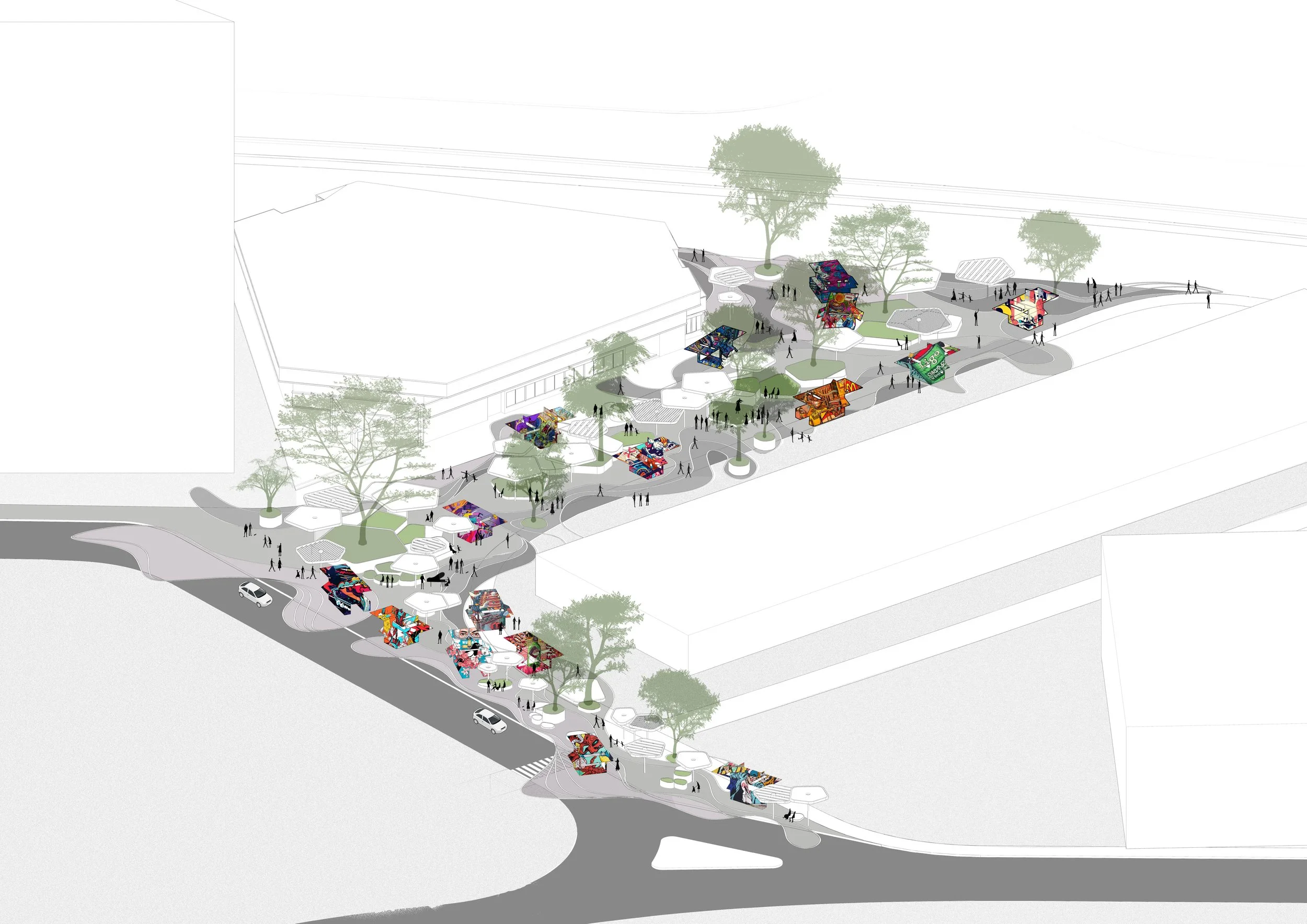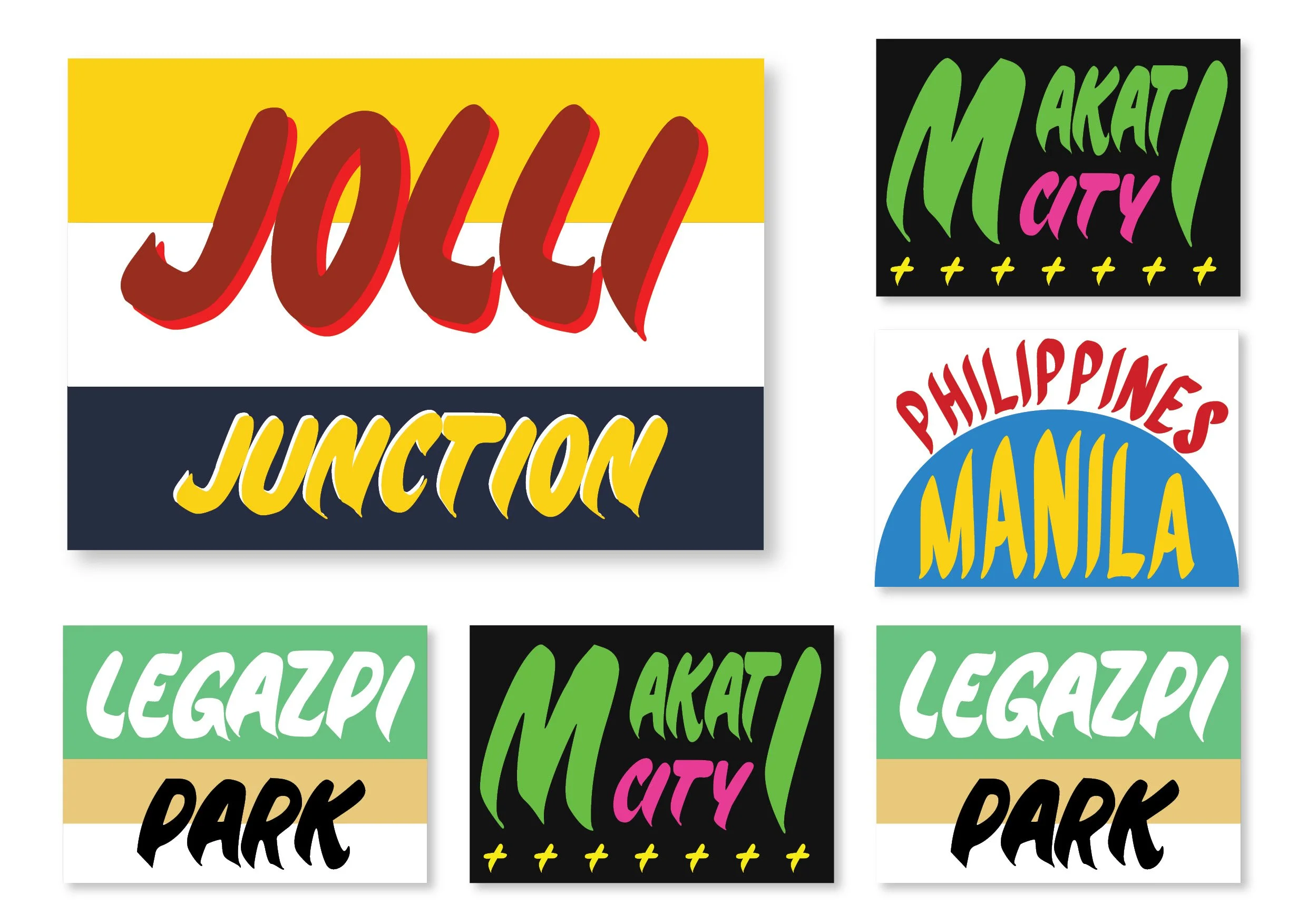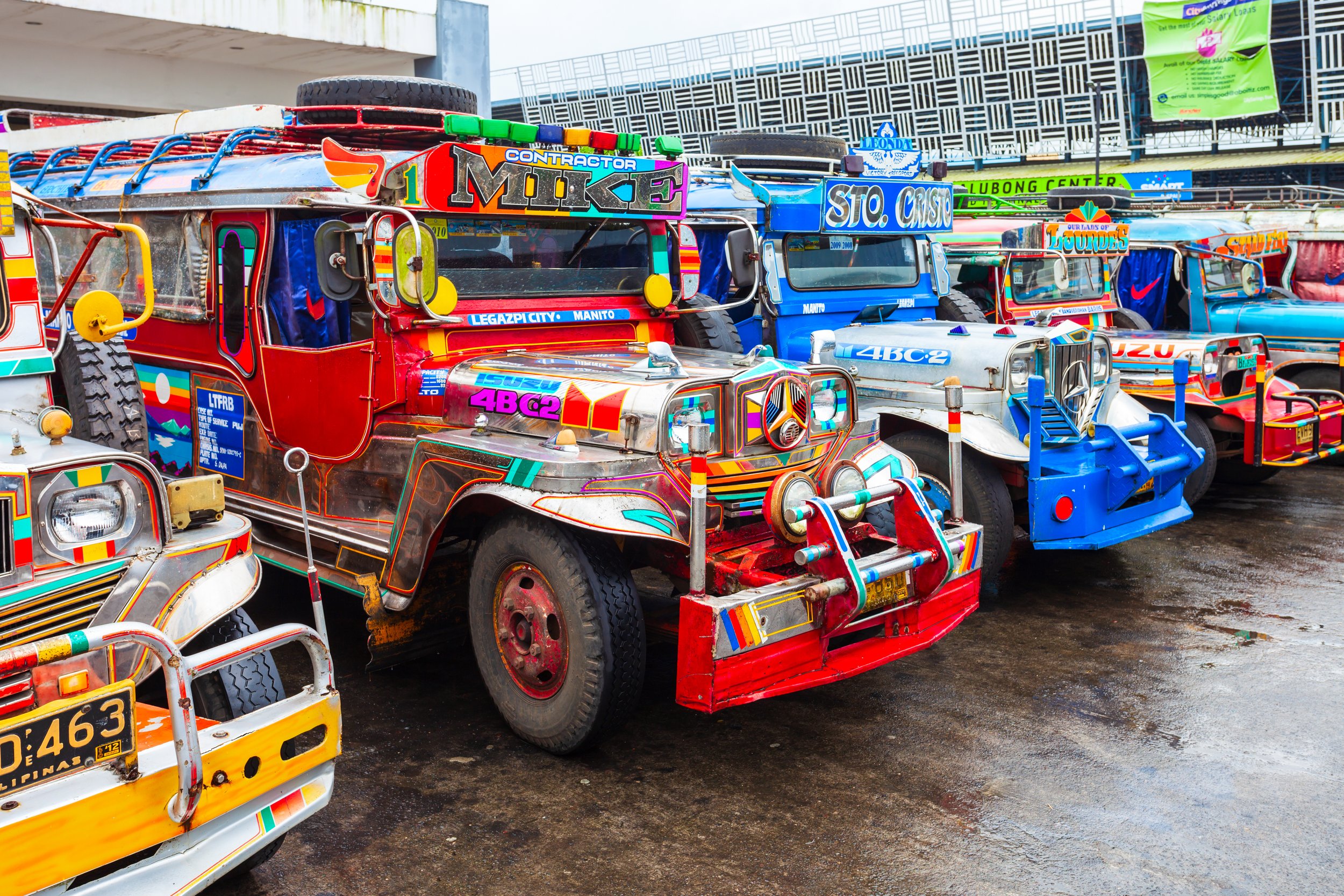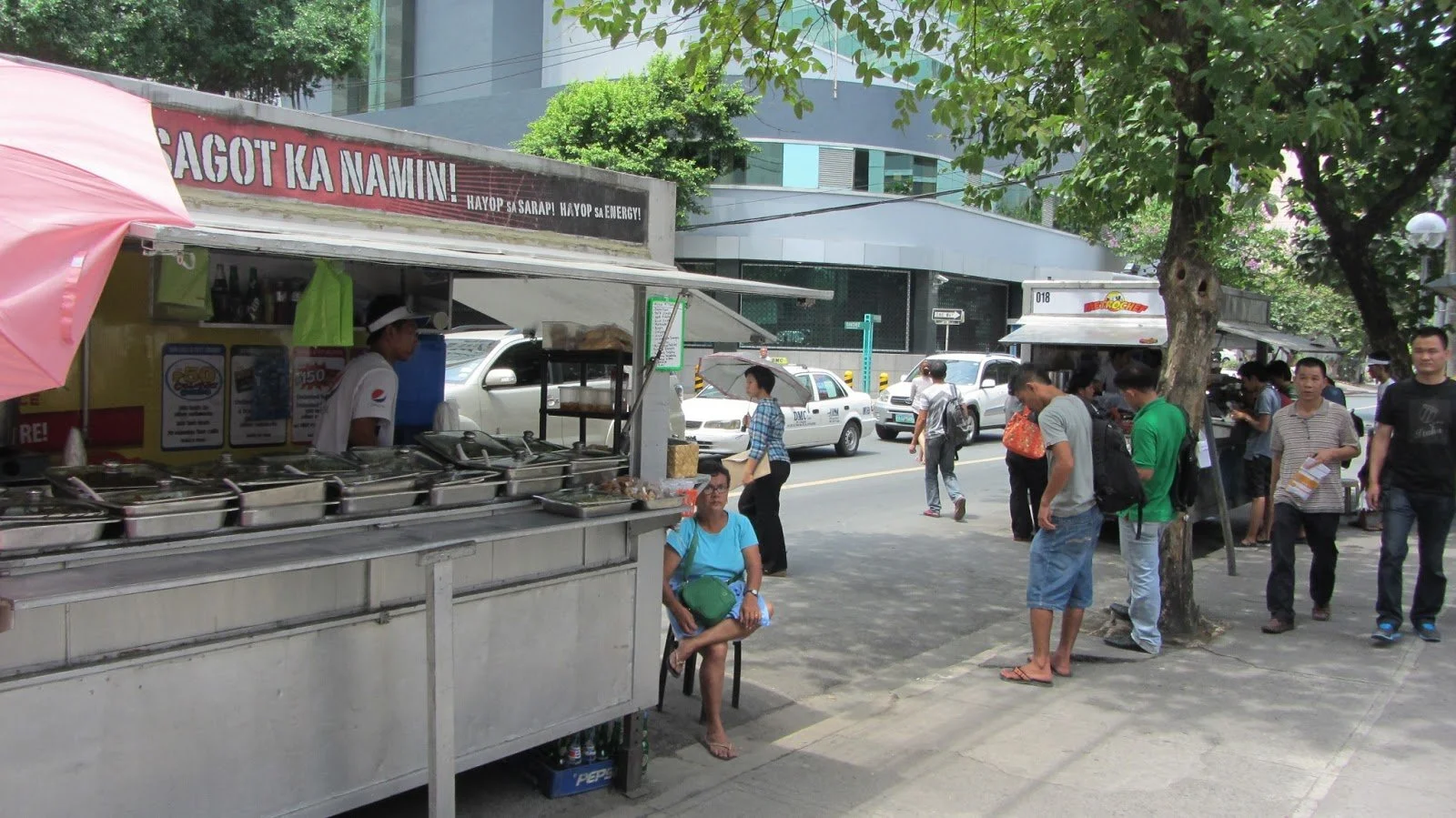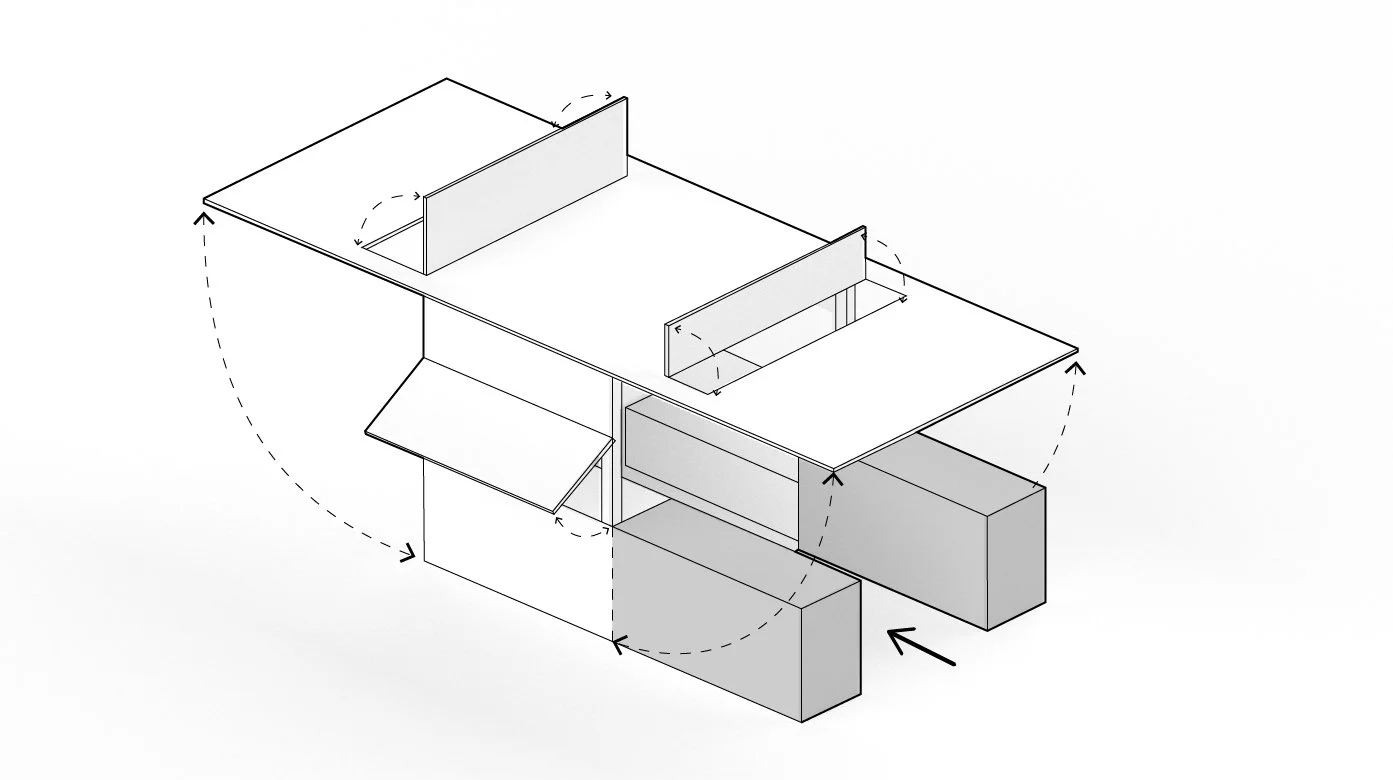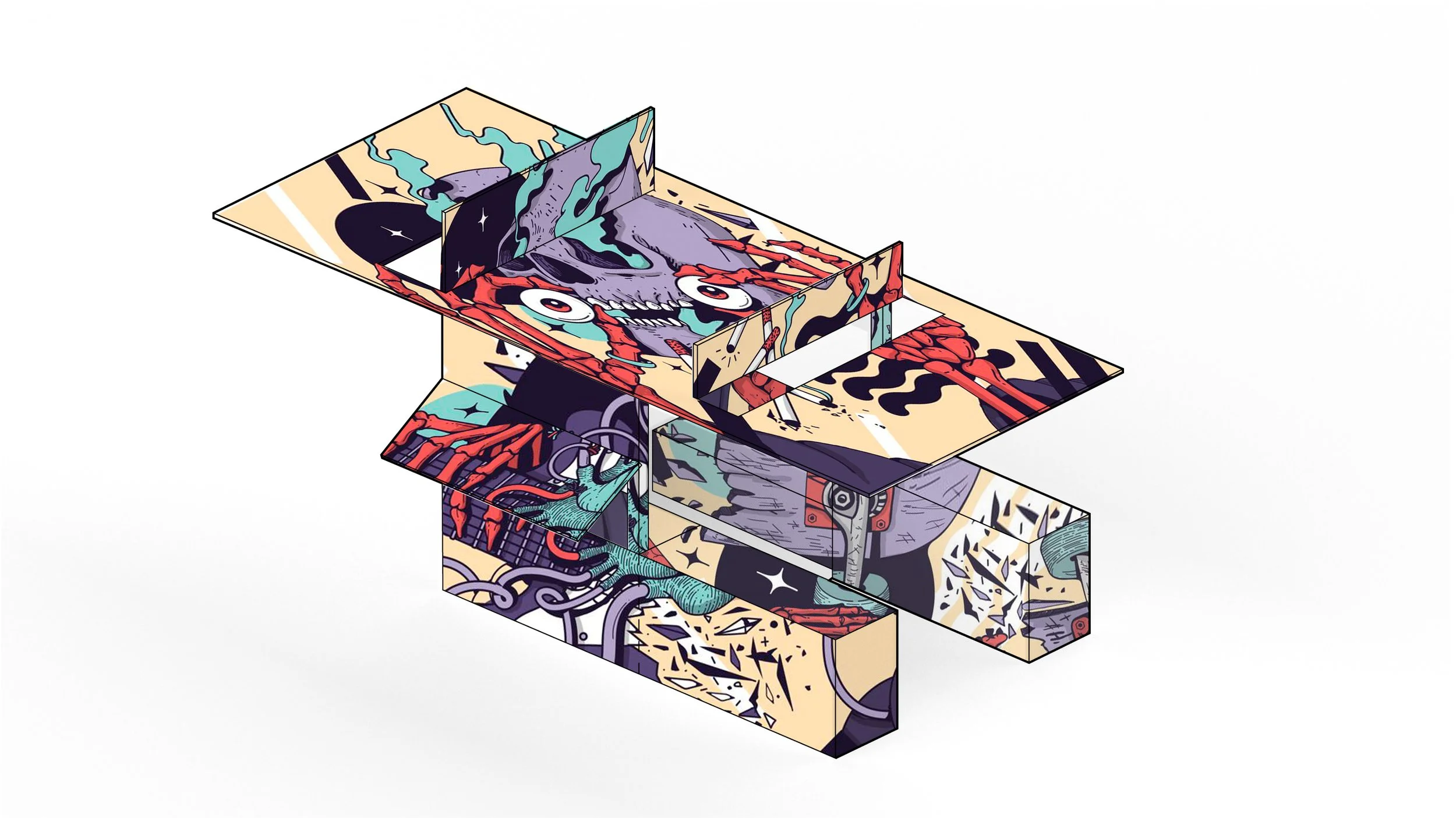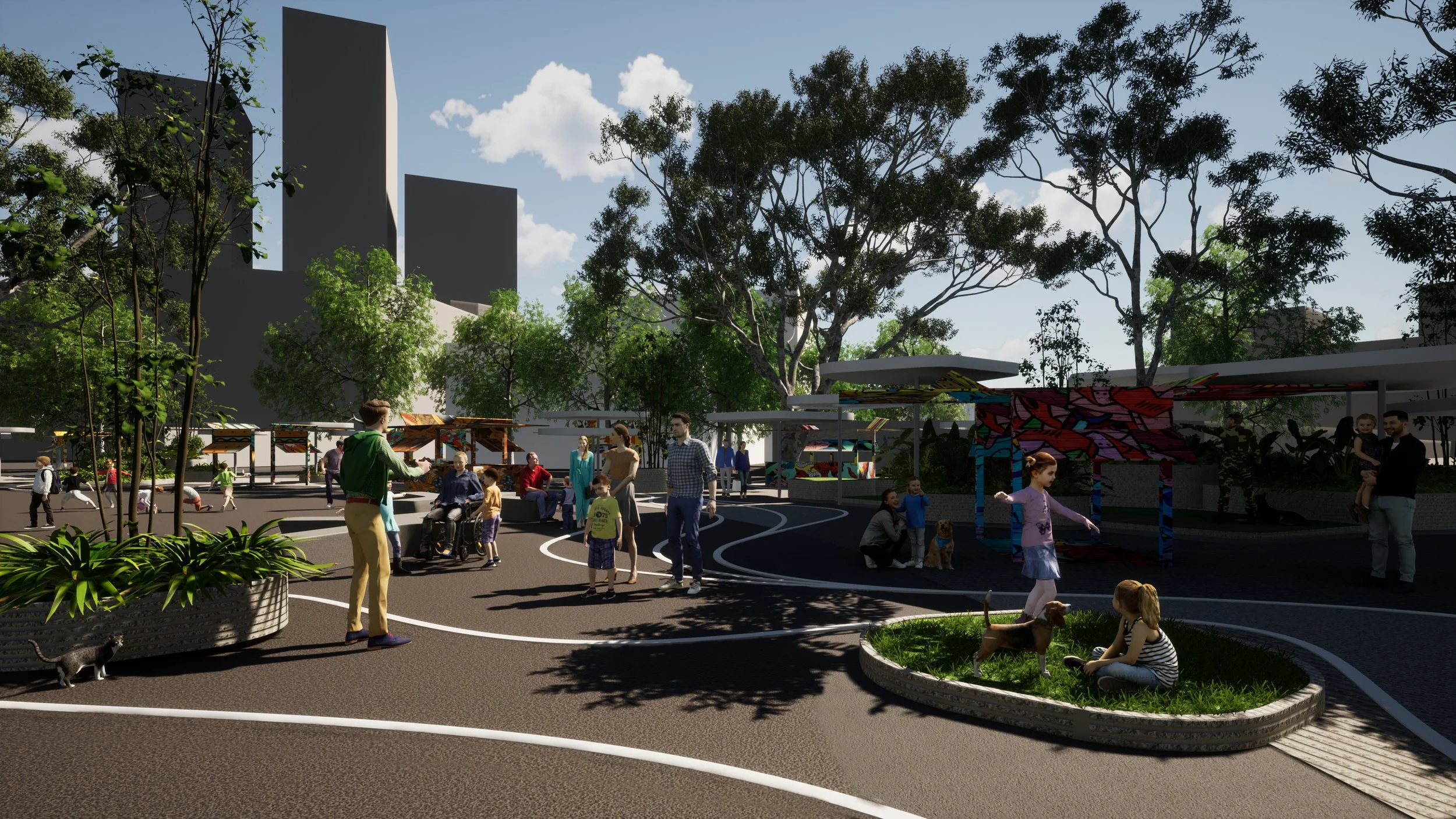JOLLI JUNCTION
/ AIDEA
Jolli Junction: An Urban Revival
Jolli Junction emerges as a beacon of urban transformation at the heart of Manila's bustling streets. Once a testament to the city's rapid and often chaotic development, the site had become a stark, emotionless hardscape. It bore the scars of urban neglect, with remnants of displaced street life and the residue of daily existence. However, amidst this urban decay, the vibrancy of the Jollijeep culture persisted. Though often relegated to the peripheries, these modern-day urban field kitchens continued to serve as hubs of culinary delight and social interaction.
Recognizing the intrinsic value of the Jollijeep culture, our vision sought to elevate this phenomenon to its rightful place in the urban narrative. We envisioned a guerrilla catering park, a space where the essence of the Jollijeep is celebrated and reimagined. By tactically deploying redesigned Jollijeeps, the once-neglected site transforms into a dynamic social zone. This urban oasis, amidst one of the planet's most densely populated cities, offers a respite from the chaos. It becomes a space where community thrives, culinary delights are savored, and stories are shared.
But Jolli Junction is more than just a celebration of the Jollijeep culture. It's a statement on the importance of reclaiming public spaces. Jolli Junction serves as a reminder of the human scale in a city dominated by towering skyscrapers and walled enclaves. It emphasizes the need for spaces that foster community, stimulate economic development, and resonate with the city's heartbeat. Through its innovative design and strategic interventions, Jolli Junction transforms an urban challenge into an opportunity, crafting a space that truly embodies the spirit of Manila.
MANILA, THE PHILIPPINES
ROLE Director of Design
LOCATION Makati City, Manila
DESIGN 2020
COMPETITION 2 Weeks
AIDEA
https://www.aidea.com.ph/
COMPETITION RESULTS
https://www.terravivacompetitions.com/tun2020_results/
The Filipino Spirit: Urban Connections and Community
The Philippines, an archipelago of diverse regions, is bound by a shared essence: the Filipino Spirit. This spirit is deeply rooted in a sense of community, evident in how Filipinos engage with their public spaces. These spaces aren't mere locations but communal anchors, fostering connections and building societies. Central to this collective bond is the Filipino's affinity for street food. Each region boasts unique culinary delights, turning any street corner into a vibrant social hub. These shared meals are more than sustenance; they're experiences that bind people together, reflecting the Filipino's innate ability to transform mundane spaces into lively communal areas. This organic transformation of public spaces, an embodiment of tactical urbanism, showcases the Filipino's intuitive urban engagement. The Filipino Spirit celebrates connections and shared moments, viewing public spaces as canvases for communal interactions.
The Urban Challenge: Makati's Dichotomy
Makati City stands as a testament to the Philippines' rapid urbanization. With its skyline dominated by glass skyscrapers, it's a beacon of economic progress. Yet, beneath this modern facade lies a challenge: the city's diminishing public spaces. As commerce thrives, community spaces wane, creating a stark urban dichotomy. Adjacent to the bustling Makati Central Business District lies a site that encapsulates this tension. The city's multifaceted functions combine healthcare, transportation, commerce, and vibrant street life. Yet, the rapid development has inadvertently marginalized the essence of Filipino street culture, pushing it to the peripheries.
The Jollijeep Phenomenon: Evolution of a Cultural Icon
The jeepney, with its flamboyant designs and crowded seating, is more than just a mode of transportation in the Philippines; it's a canvas of cultural expression. Each jeepney tells a story, showcasing the creativity and identity of its owner. It's a moving testament to Filipino ingenuity and resilience. From this cultural bedrock emerged the Jollijeep, a fusion of the jeepney's mobility with the Filipinos' love for street food. Initially, these mobile food stalls roamed Makati's streets, bringing vibrancy and flavor to every corner. However, as the cityscape evolved, so did the Jollijeep. From a dynamic, multi-sensory experience, it transformed into stationary kiosks, trading mobility for stability. Yet, even in its static form, the Jollijeep remains a symbol. It's a reminder of its automotive origins and the city's ever-evolving relationship with its street culture.
Makati's Urban Tapestry: Commerce Meets Culture
Makati, the National Capital Region's pulsating heart, juxtaposes the old and new. Its skyline, dominated by glass skyscrapers, is a testament to its economic prowess. Yet, beneath these towering edifices, the city's soul thrives. Public green spaces may be a rarity, but the vibrancy of street life compensates, painting a colorful tableau of daily life. However, unchecked urban development poses challenges. The once bustling streets, where communities thrived, are now overshadowed by commercial ventures. The city's essence, its street culture, is pushed to the peripheries, often resulting in makeshift setups that, while lively, can pose hazards.
Rehabilitation Through Design: A Vision for Jolli Junction
The project site is situated on the cusp of Makati's Central Business District and is a melting pot of urban functions. This nexus is a microcosm of the city's dynamism, from healthcare to transportation hubs, commercial zones, and residential areas. Yet, amidst this urban cacophony, the Jollijeeps have found their niche, bringing a unique flavor to the locale. However, the current setup, resulting from rapid urbanization, needs more cohesion. The challenge was transforming this space to create an urban oasis where commerce, culture, and community converge. The vision for Jolli Junction was clear: to craft a space that resonates with the city's ethos, where the Jollijeep phenomenon is celebrated, and where people can connect, dine, and rejuvenate.
Reimagining Urban Narratives
Jolli Junction stands as a beacon of urban rejuvenation, a testament to the transformative power of design. Weaving together the threads of culture, commerce, and community offers a glimpse into the future of urban spaces. A future where tactical urbanism not only addresses challenges but celebrates the spirit of the city. In the ever-evolving tapestry of Manila, Jolli Junction is a vibrant patch, a reminder of the city's undying spirit and the endless possibilities.




Competition Context
The "Tactical Urbanism NOW!" competition sought to reimagine urban spaces, pushing the boundaries of traditional urban design. It challenged participants to envision a city where public spaces transcend conventional definitions, fostering community and enhancing the urban experience. Jolli Junction, with its innovative approach to reclaiming and revitalizing urban areas, aligns seamlessly with the competition's ethos. It addresses the challenges posed by rapid urbanization and celebrates the city's spirit, making it a fitting entry for the competition.
For a comprehensive overview of the competition and its winners, click here.

